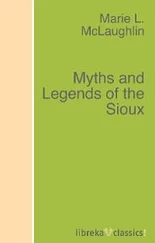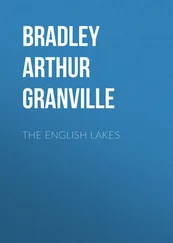White John White - Lays and Legends of the English Lake Country
Здесь есть возможность читать онлайн «White John White - Lays and Legends of the English Lake Country» — ознакомительный отрывок электронной книги совершенно бесплатно, а после прочтения отрывка купить полную версию. В некоторых случаях можно слушать аудио, скачать через торрент в формате fb2 и присутствует краткое содержание. Жанр: foreign_poetry, Поэзия, foreign_antique, foreign_prose, на английском языке. Описание произведения, (предисловие) а так же отзывы посетителей доступны на портале библиотеки ЛибКат.
- Название:Lays and Legends of the English Lake Country
- Автор:
- Жанр:
- Год:неизвестен
- ISBN:нет данных
- Рейтинг книги:4 / 5. Голосов: 1
-
Избранное:Добавить в избранное
- Отзывы:
-
Ваша оценка:
- 80
- 1
- 2
- 3
- 4
- 5
Lays and Legends of the English Lake Country: краткое содержание, описание и аннотация
Предлагаем к чтению аннотацию, описание, краткое содержание или предисловие (зависит от того, что написал сам автор книги «Lays and Legends of the English Lake Country»). Если вы не нашли необходимую информацию о книге — напишите в комментариях, мы постараемся отыскать её.
Lays and Legends of the English Lake Country — читать онлайн ознакомительный отрывок
Ниже представлен текст книги, разбитый по страницам. Система сохранения места последней прочитанной страницы, позволяет с удобством читать онлайн бесплатно книгу «Lays and Legends of the English Lake Country», без необходимости каждый раз заново искать на чём Вы остановились. Поставьте закладку, и сможете в любой момент перейти на страницу, на которой закончили чтение.
Интервал:
Закладка:
The late Mr. John Briggs, in his notes upon "Westmorland as it was," by the Rev. Mr. Hodgson, has furnished his readers with some curious information upon the "philosophy of spirits," which he collected from those ancient sages of the dales who were supposed to be best acquainted with the subject. Many of these superstitions are now exploded: but the marvellous tales at one time currently believed, still furnish conversation for the cottage fireside. According to the gravest authorities, he says, no spirit could appear before twilight had vanished in the evening, or after it had appeared in the morning. On this account, the winter nights were peculiarly dangerous, owing to the long revels which ghosts, or dobbies, as they were called, could keep at that season. There was one exception to this. If a man had murdered a woman who was with child by him, she had power to haunt him at all hours; and the Romish priests (who alone had the power of laying spirits,) could not lay a spirit of this kind with any certainty, as she generally contrived to break loose long before her stipulated time. A culprit might hope to escape the gallows, but there was no hope of escaping being haunted. In common cases, however, the priest could "lay" the ghosts; "while ivy was green," was the usual term. But in very desperate cases, they were laid in the "Red Sea," which was accomplished with great difficulty and even danger to the exorcist. In this country, the most usual place to confine spirits was under Haws Bridge, a few miles below Kendal. Many a grim ghost has been chained in that dismal trough!
According to the laws to which they were subject, ghosts could seldom appear to more than one person at a time. When they appeared to the eyes, they had not the power of making a noise; and when they saluted the ear, they could not greet the eyes. To this, however, there was an exception, when a human being spoke to them in the name of the Blessed Trinity. For it was an acknowledged truth, that however wicked the individual might have been in this world, or however light he might have made of the Almighty's name, he would tremble at its very sound, when separated from his earthly covering.
The causes of spirits appearing after death were generally three. Murdered persons came again to haunt their murderers, or to obtain justice by appearing to other persons likely to see them avenged. Persons who had hid any treasure, were doomed to haunt the place where that treasure was hid; as they had made a god of their wealth in this world, the place where their treasure lay was to be their heaven after death. If any person could speak to them, and give them an opportunity of confessing where their treasure was hid, they could then rest in peace, but not otherwise. Those who died with any heavy crimes on their consciences, which they had not confessed, were also doomed to wander on the earth at the midnight hour.
Spirits had no power over those who did not molest them; but if insulted, they seem to have been extremely vindictive, and to have felt little compunction in killing the insulter. They had power to assume any form, and to change it as often as they pleased; but they could neither vanish nor change, while a human eye was fixed upon them.
Midway on Windermere, below the range of islands which intersect the lake, extends the track along which ply the Ferry boats between the little inn on the western side and the wooded promontory on the opposite shore. The Ferry House, with its lawn in front and few branching sycamores, occupies a jutting area between the base of a perpendicular cliff and the lake. Few finer prospects can be desired than that afforded from the summit which overhangs the Mere at this point. The summer house, which has been built for the sake of the views it commands of the surrounding country, is a favourite resort of lovers of the beautiful in nature, whence they may witness, in its many aspects afar, the grandeur of the mountain world; and near and below, the beauty of the curving shores and wooded isles of this queen of English lakes. From the Ferry House to the Ferry Nab, as the promontory is called, on the western shore, is barely half a mile. It was from thence that in the dark stormy night the Evil voice cried "Boat!" which the poor ferryman obeyed so fatally. No passenger was there, but a sight which sent him back with bloodless face and dumb, to die on the morrow.
THE CUCKOO IN BORRODALE
Far within those rocky regions
Where old Scawfell's hoary legions,
Robed and capped with storms and snow,
Here like rugged Vikings towering,
There like giants grimly cowering,
Look into the vales below;
Once where Borrhy wild and fearless,
Once where Oller brave and peerless,
Hew'd the forest, cleared the vale,
Gave their names to cling for ever
Round thy dells by crag and river,
Dark and wintry Borrodale!
In that dreariest of the valleys,
Strifes for evermore, and malice
Without end the dalesmen vexed.
Neighbour had no heart for neighbour.
Never side by side to labour
Went or came they unperplex'd.
Cheerless were the fields and houses.
Gloomily the sullen spouses
Moved about the hearths and floors.
Sunshine was an alms from Heaven
That not one day out of seven
God's bright beams brought to their doors.
And 'mid discontent and anguish
Every virtue seem'd to languish;
Every soul groan'd with its load.
Lingering in his walks beside them,
Oft their friendly Pastor eyed them,
And his heart with pity glow'd.
"Ah!" he thought, "that looks of kindness
Could but enter here! the blindness
Of this life, could it but seem
To them the death it is!—but listen!"—
And his eyes began to glisten:
Spring was round him like a dream.
"'Tis the Cuckoo!"—In the hollow
Up the valley seem'd to follow
Spring's fair footsteps that sweet throat.
All the fields put off their sadness;
Trees and hills and skies with gladness
Answering to the Cuckoo's note.
Then on that still Sabbath-morrow,
Spake the Pastor—"Let us borrow
Gladness from this new-born Spring.
Hark, the bird that brings the blossoms!
Brings the sunshine to our bosoms!
Makes with joy the valleys ring!
"Coming from afar to cheer us,
Could we always keep him near us,
All these heavenly skies from far,
All this blessed morn discovers,
All this Spring that round us hovers,
Would be still what now they are!
"Let us all go forth and labour,
Sire, and son, and wife, and neighbour,
First the bread, the life, to win:
Then by yonder stream we'll rally,
Build a wall across the valley,
And we'll close the Cuckoo in.
"So this Spring time, never failing,
While it hears his music hailing
From the wood and by the rill.
Shall, its new born life retaining,
Till our mortal hours are waning,
Warm and light and cheer us still."—
Flush'd the morn; and all were ready.
Sowers sowed with paces steady;
Plough'd the ploughers in the field;
Delved the gardeners; planters planted;
Then to their great work, undaunted
Forth they fared their wall to build.
Stone by stone, the wall beside them
Rose. Their Pastor came to guide them,
Day by day, and spake to cheer;
While each labouring hand the others
Helped, and one and all like brothers
Wrought along the ripening year.
Then they gathered in their houses,
Men and maidens, sires and spouses,
Talking of their wall. And when
Soon the long bright day returning
Called them, every heart was yearning
To resume its task again.
Интервал:
Закладка:
Похожие книги на «Lays and Legends of the English Lake Country»
Представляем Вашему вниманию похожие книги на «Lays and Legends of the English Lake Country» списком для выбора. Мы отобрали схожую по названию и смыслу литературу в надежде предоставить читателям больше вариантов отыскать новые, интересные, ещё непрочитанные произведения.
Обсуждение, отзывы о книге «Lays and Legends of the English Lake Country» и просто собственные мнения читателей. Оставьте ваши комментарии, напишите, что Вы думаете о произведении, его смысле или главных героях. Укажите что конкретно понравилось, а что нет, и почему Вы так считаете.












